I don't know about you, but I really do my part to clutter the internet with crap. I post silly photos of my friends on Facebook by the dozen. I email videos of my little cousins opening Christmas presents to my entire extended family. I tweet my chickens' baby pictures. And that's nothing compared to my friend Seth, who saves all his emails, along with every single digital picture he's ever taken, both on his home server and online. I remember reading somewhere that putting two megabytes of data online is the equivalent of burning a pound of coal. By that calculation, Seth's 240-gigabyte digital hoard could have powered a 100-watt lightbulb 24/7 since the War of 1812. Which got me wondering: Are digital pack rats like Seth and me guzzling tons of energy with our obsessive archiving?
Democracy Gone Astray
Democracy, being a human construct, needs to be thought of as directionality rather than an object. As such, to understand it requires not so much a description of existing structures and/or other related phenomena but a declaration of intentionality.
This blog aims at creating labeled lists of published infringements of such intentionality, of points in time where democracy strays from its intended directionality. In addition to outright infringements, this blog also collects important contemporary information and/or discussions that impact our socio-political landscape.
All the posts here were published in the electronic media – main-stream as well as fringe, and maintain links to the original texts.
[NOTE: Due to changes I haven't caught on time in the blogging software, all of the 'Original Article' links were nullified between September 11, 2012 and December 11, 2012. My apologies.]
Monday, September 12, 2011
Rick Perry's Jobs Strategy: Raiding Other States

Rick Perry's campaign is publicizing a series of quotes from Meg Whitman intended to vouch for him as Mr. Job Creator. But her words, posted on his website and emailed to reporters, in fact paint him as Mr. Job Poacher, an economic marauder who raided other states for the greater glory of Texas and pursued a growth agenda that would be impossible to replicate on the national stage.
According to the Perry campaign, Whitman said last year: "Texas Governor Rick Perry says he comes on hunting trips to California. ... And I said, 'Really? What are you hunting out here?' He said, 'Companies.'"
Perry bragged to her about the "virtually zero percent corporate income tax" and "lightning speed" permitting process in Texas, she said. She praised the state's tort reforms and "ombudsmen for every industry." If she were launching eBay right now, Whitman says, "probably Texas" is where she'd do it.
That's all really great for Texas, but it's hard to see the benefit for anyplace else -- and even harder to see how it can be a model for the country at large.
Let's say that every state streamlined its permitting, added industry ombudsmen, lowered its corporate income tax rate and offered incentives to companies to expand or relocate.
Michigan still wouldn't have Texas assets like oil and gas reserves, a warm climate, NASA and huge military installations. It would still be saddled with the heartbreaking decline of its major city, Detroit. It would still be seeing an exodus of people and the consequent loss of teachers, firefighters, cops and other government workers needed to serve them -- just as Texas has gained public employees as its population has surged.
Furthermore, before we head down the road of "We are all Texans now," those outside the Lone Star State need to ask ourselves: do we really want the Texas model? The safety net there is seriously frayed. Texas may be No. 1 in job growth, but it's also No. 1 in people without health insurance (more than a quarter uninsured), No. 1 in high school dropouts (more than 20 percent don't have a diploma or GED) and the nation's No. 1 emitter of carbon pollution. It's among the top states in child poverty, teen pregnancy and low-paying jobs, as well.
But say Americans are so desperate for change that they are okay with risking a race to the bottom. The next question is how to turn Perry's zero-sum job strategy into one where America, not just Texas, wins. Where are states like Michigan and Nevada going to poach jobs from? Mexico? Ireland? China? You can't undercut their wages. And if the answer is to be smarter, how do you take away $4 billion from education -- as Perry just did in Texas -- and still make that happen?
Back in 1991, the New Hampshire economy was in such bad shape that competitors in its pivotal primary, including Bill Clinton and Paul Tsongas, issued full-blown plans to revive that one state's economy. Maybe Perry could start with job plans for a few of what you might call donor states. What would he do in Nevada, which already has zero corporate income taxes -- even lower than Texas? How about California, which is hamstrung by union clout and voter mandates that make it nearly impossible to fund the government?
On a national scale, will he concede that not all regulation is bad for an economy? Texas is living proof. In 1998, before Perry was governor, it began requiring a 20
Will his only proposal on health care be to let states do whatever they want with federal money? Besides "getting out of the way," does he see any federal role in reviving the economy?
A national economy can't grow by some states sucking jobs from others, based on which tax the least and let corporations off the hook on the widest range of societal responsibilities. Odd, then, that Perry's campaign would advertise him as being so skilled in this respect.
Origin
Source: the Atlantic
A Decade After 9/11, Police Departments Are Increasingly Militarized
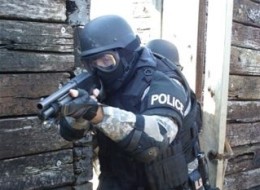 New York magazine reported some telling figures last month on how delayed-notice search warrants -- also known as "sneak-and-peek" warrants -- have been used in recent years. Though passed with the PATRIOT Act and justified as a much-needed weapon in the war on terrorism, the sneak-and-peek was used in a terror investigation just 15 times between 2006 and 2009. In drug investigations, however, it was used more than 1,600 times during the same period.
New York magazine reported some telling figures last month on how delayed-notice search warrants -- also known as "sneak-and-peek" warrants -- have been used in recent years. Though passed with the PATRIOT Act and justified as a much-needed weapon in the war on terrorism, the sneak-and-peek was used in a terror investigation just 15 times between 2006 and 2009. In drug investigations, however, it was used more than 1,600 times during the same period.It's a familiar storyline. In the 10 years since the terror attacks of September 11, 2001, the government has claimed a number of new policing powers in the name of protecting the country from terrorism, often at the expense of civil liberties. But once claimed, those powers are overwhelmingly used in the war on drugs. Nowhere is this more clear than in the continuing militarization of America's police departments.
Paul Krugman 9/11 Blog Post Stokes Controversy
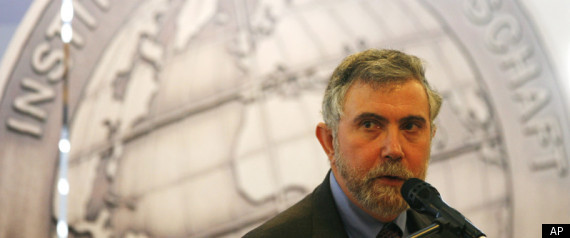 Paul Krugman drew conservative outrage on Sunday when he wrote that the anniversary of 9/11 had become a marker of "shame" for the U.S. (Scroll down for Krugman's new post on the subject.)
Paul Krugman drew conservative outrage on Sunday when he wrote that the anniversary of 9/11 had become a marker of "shame" for the U.S. (Scroll down for Krugman's new post on the subject.)The New York Times columnist wrote a blog post called "The Years of Shame," in which he said that "what happened after 9/11" was "deeply shameful." Krugman castigated people like Rudy Giuliani and President Bush as "fake heroes" who exploited the attacks for their own personal, political or military gain. He also said that many in the media had "[lent] their support to the hijacking of the atrocity."
Krugman concluded, "the memory of 9/11 has been irrevocably poisoned; it has become an occasion for shame. And, in its heart, the nation knows it." He said he had turned off the comments on the post "for obvious reasons."
Jamie Dimon, CEO Of JPMorgan Chase, Calls International Bank Rules 'Anti-American'
 The United States should consider pulling out of the Basel group of global regulators, Jamie Dimon, chief executive of JPMorgan Chase, said in an interview with the Financial Times.
The United States should consider pulling out of the Basel group of global regulators, Jamie Dimon, chief executive of JPMorgan Chase, said in an interview with the Financial Times.Dimon said he was supportive of forcing banks to have more capital but argued that moves to impose an additional charge on the largest global banks went too far, particularly for U.S. lenders.
He was quoted as describing new international bank capital rules as "anti-American".
"I'm very close to thinking the U.S. shouldn't be in Basel anymore. I would not have agreed to rules that are blatantly anti-American," he said in the interview.
"Our regulators should go there and say: 'If it's not in the interests of the U.S., we're not doing it'."
Ex-French President Jacques Chirac Faces Corruption Charges
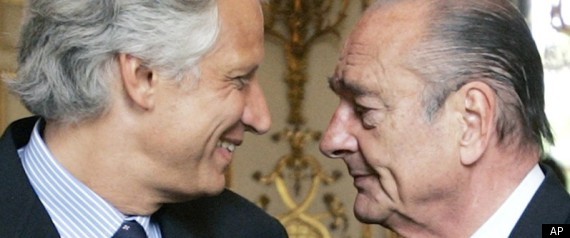 PARIS — Former French President Jacques Chirac and former Prime Minister Dominique de Villepin received an estimated $20 million in illegal cash from West African leaders, a lawyer who claimed to be the go-between said Monday.
PARIS — Former French President Jacques Chirac and former Prime Minister Dominique de Villepin received an estimated $20 million in illegal cash from West African leaders, a lawyer who claimed to be the go-between said Monday.Lawyer Robert Bourgi said he handed over suitcases filled with cash between 1995 and 2005, including $10 million from the leaders of Senegal, Burkina Faso, Ivory Coast, Gabon and Republic of Congo for Chirac's 2002 presidential campaign.
Both Villepin and Chirac's lawyers denounced the claims.
The explosive allegations come as Chirac is on trial for unconnected corruption charges related to his years as Paris mayor, and as the campaign for next year's French presidential elections is heating up. The claims revived uncomfortable questions about France's cozy relations with autocratic regimes in its former African colonies.
Alleged G20 conspirators ask for trial by judge and jury
Fifteen months after the tumultuous G20 summit in Toronto, the preliminary inquiry for 17 people accused of conspiring to disrupt it has begun in the city’s north end.
The hearing before Mr. Justice Gerald Lapkin of the Ontario Court of Justice will determine whether there is sufficient evidence to commit the 10 men and seven women to trial, and is scheduled to last about 11 weeks.
Amid tight security, the 17 defendants and a group of supporters filed into the big Finch Avenue West courtroom shortly before 10 a.m. Monday and took their seats along the west wall. All but one of the accused, who for now is representing himself, have lawyers.
After some procedural issues were dealt with, lead prosecutor Jason Miller began summarizing the Crown’s evidence, which was placed under the usual pre-trial publication ban.
Most of the 17 defendants are in their early 20s and are variously accused of conspiring to commit mischief, obstruct police, resist arrest and with counselling to assault police.
The hearing before Mr. Justice Gerald Lapkin of the Ontario Court of Justice will determine whether there is sufficient evidence to commit the 10 men and seven women to trial, and is scheduled to last about 11 weeks.
Amid tight security, the 17 defendants and a group of supporters filed into the big Finch Avenue West courtroom shortly before 10 a.m. Monday and took their seats along the west wall. All but one of the accused, who for now is representing himself, have lawyers.
After some procedural issues were dealt with, lead prosecutor Jason Miller began summarizing the Crown’s evidence, which was placed under the usual pre-trial publication ban.
Most of the 17 defendants are in their early 20s and are variously accused of conspiring to commit mischief, obstruct police, resist arrest and with counselling to assault police.
Rick Perry’s Juvie Record
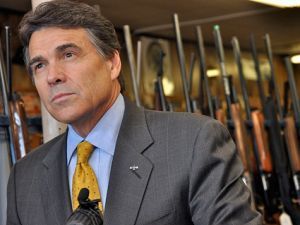 Mary Jane Martinez's son Jimmy entered the Texas criminal justice system in 2003 because he missed his school bus. He was charged with truancy and destruction of property (for throwing rocks) and sent to live in a county juvenile detention center for a sentence of six months. After five months, instead of being released, he was transferred to an academy 400 miles away, managed by the Texas Youth Commission, the agency that oversees detention and treatment centers across the state. Jimmy finally came home, four years after he was sent away, a period his mother now describes as a living hell. His best friend had been murdered, and Jimmy had been beaten and raped—both, Mrs. Martinez testifed, by TYC guards.
Mary Jane Martinez's son Jimmy entered the Texas criminal justice system in 2003 because he missed his school bus. He was charged with truancy and destruction of property (for throwing rocks) and sent to live in a county juvenile detention center for a sentence of six months. After five months, instead of being released, he was transferred to an academy 400 miles away, managed by the Texas Youth Commission, the agency that oversees detention and treatment centers across the state. Jimmy finally came home, four years after he was sent away, a period his mother now describes as a living hell. His best friend had been murdered, and Jimmy had been beaten and raped—both, Mrs. Martinez testifed, by TYC guards."It just made him worse," Martinez says of the treatment. "My son has PTSD now. He's schizo." Unable to find a job after getting out, he was arrested for burglary and landed in a prison facility eight hours away from his native San Antonio.
Martinez's story is hardly an outlier. For years, the Texas juvenile justice system was wracked by reports of rape, unsanitary conditions, and physical abuse. According to statistics submitted by the TYC in 2007, 83 percent of residents who requested counseling that year were ultimately diagnosed with post-traumatic stress disorder. At one youth facility in central Texas, the mistreatment and squalid conditions (feces on the walls and bed-sheets, steel bars blocking fire escapes) were so bad they left no choice but for the agency to shut it down entirely.
Harper’s single white males
For a loner, Stephen Harper works surprisingly well with others. The Prime Minister won his job by earning the loyalty of the old Reform party even though he used to be Preston Manning’s most persistent internal critic. He ended a decade’s rivalry with the Progressive Conservatives after doing more than almost anyone to fuel the rivalry.
He has wooed former Liberals into his caucus, sent New Democrat Gary Doer to Washington as Canada’s ambassador, and even put the occasional former Bloc Québécois member on the government payroll. No premier except Newfoundland’s now-retired Danny Williams has seen any political profit in antagonizing him. Harper drives his political opponents so crazy that it’s less frequently noticed how often he makes allies.
But the flip side of that coin is that his alliances rarely last. He hardly talks to former advisers like Tom Flanagan. He is on his fourth chief of staff, sixth communications director, and fifth foreign minister since he became Prime Minister. Jean Chrétien kept Eddie Goldenberg at his side for nearly 40 years. Paul Martin kept his 1990 Liberal leadership team around him until the day he retired. Harper’s team is like George Washington’s axe in the old joke, its blade replaced three times and its handle 26. All that remains is the ability to chop down opponents.
He has wooed former Liberals into his caucus, sent New Democrat Gary Doer to Washington as Canada’s ambassador, and even put the occasional former Bloc Québécois member on the government payroll. No premier except Newfoundland’s now-retired Danny Williams has seen any political profit in antagonizing him. Harper drives his political opponents so crazy that it’s less frequently noticed how often he makes allies.
But the flip side of that coin is that his alliances rarely last. He hardly talks to former advisers like Tom Flanagan. He is on his fourth chief of staff, sixth communications director, and fifth foreign minister since he became Prime Minister. Jean Chrétien kept Eddie Goldenberg at his side for nearly 40 years. Paul Martin kept his 1990 Liberal leadership team around him until the day he retired. Harper’s team is like George Washington’s axe in the old joke, its blade replaced three times and its handle 26. All that remains is the ability to chop down opponents.
Ferris wheel pitchman says ‘only Rob Ford’ listened
 When Councillor Doug Ford introduced the notion of a waterfront Ferris wheel for the moribund Port Lands, one person in Toronto wasn’t a bit surprised.
When Councillor Doug Ford introduced the notion of a waterfront Ferris wheel for the moribund Port Lands, one person in Toronto wasn’t a bit surprised.John Kowal has talked to countless civic leaders about his money-making proposition for the city. The 77-year-old retired manufacturing engineer says he has been pitching a giant wheel modelled after the London Eye for seven years, but grew discouraged and threw away the papers with his calculations and business plan.
“I got a little tired of just holding onto it and not seeming to get anywhere. Eventually you get disillusioned,” he said.
Then he talked to Rob Ford.
Sell zoos and theatres, cut daycare, think about closing libraries: City manager
 City council should consider cuts to the library system, eliminating late-night TTC buses, selling or closing the Toronto Zoo and Riverdale Farm, and cutting the number subsidized child care spaces, Toronto’s top bureaucrat says.
City council should consider cuts to the library system, eliminating late-night TTC buses, selling or closing the Toronto Zoo and Riverdale Farm, and cutting the number subsidized child care spaces, Toronto’s top bureaucrat says.In a report on Toronto’s “core service review” released Monday morning, city manager Joe Pennachetti also endorsed a host of other cuts and service changes proposed by consulting firm KPMG earlier in the year.
If all of them were implemented, Pennachetti wrote, the city would save $100 million in 2012.
That is far less than the $774 million Mayor Rob Ford has insisted the city needs to find to balance its budget. Even though the true budget gap is less than $500 million because of surplus funds and other revenues, the recommendations suggest that most of the shortfall will not be covered through cuts.
Here’s a royal suggestion
 Memo to the Prime Minister
Memo to the Prime MinisterFrom: Nigel Wright, chief of staff
Subject: Back to the Future
You asked for suggestions about how to build on our restoration of the British monarchy as a Canadian symbol and our “tough on crime” policies in order to retrofit Canada for the 1950s, while appealing to our party’s core supporters. Here are a few thoughts:
Absence of Empathy
 Look beyond the ceremonies sanctifying September 11, and you’ll see in turns deep grief, suffering – and rank hypocrisy.
Look beyond the ceremonies sanctifying September 11, and you’ll see in turns deep grief, suffering – and rank hypocrisy.As America’s leaders read the scriptures and salute the armed forces, little is said of the injustice the US government continues to commit against its own people. In 2001, fire-fighters, police, emergency services and regular civilians waded into the poisonous wreckage of the twin towers in search of survivors and human remains.
Perhaps they had no idea.
Or they put out of mind, the maw of toxicity in which they were working: 90,000 litres of jet fuel from the fallen planes, hundreds of tonnes of asbestos, pulverised lead, mercury and other highly toxic chemicals.
These men and women went in wearing no more than a bandanna over their mouths or what the Daily Show’s Jon Stewart described as the kind of mask “a Japanese businessman would wear when he has a cold.”
U.S. Identifies Vast Mineral Riches in Afghanistan
WASHINGTON — The United States has discovered nearly $1 trillion in untapped mineral deposits in Afghanistan, far beyond any previously known reserves and enough to fundamentally alter the Afghan economy and perhaps the Afghan war itself, according to senior American government officials.
The previously unknown deposits — including huge veins of iron, copper, cobalt, gold and critical industrial metals like lithium — are so big and include so many minerals that are essential to modern industry that Afghanistan could eventually be transformed into one of the most important mining centers in the world, the United States officials believe.
An internal Pentagon memo, for example, states that Afghanistan could become the “Saudi Arabia of lithium,” a key raw material in the manufacture of batteries for laptops and BlackBerrys.
The vast scale of Afghanistan’s mineral wealth was discovered by a small team of Pentagon officials and American geologists. The Afghan government and President Hamid Karzai were recently briefed, American officials said.
An internal Pentagon memo, for example, states that Afghanistan could become the “Saudi Arabia of lithium,” a key raw material in the manufacture of batteries for laptops and BlackBerrys.
The vast scale of Afghanistan’s mineral wealth was discovered by a small team of Pentagon officials and American geologists. The Afghan government and President Hamid Karzai were recently briefed, American officials said.
Cornel West on 40th Anniversary of Attica Prison Rebellion
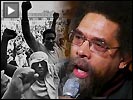 This week marks the 40th anniversary of another 9/11 tragedy: the Attica prison rebellion. On September 9, 1971, prisoners took over much of state prison in Attica, New York, to protest conditions at the maximum security prison. Then-Governor Nelson Rockefeller ordered state police to storm the facility on the morning of September 13. Troopers shot indiscriminately more than 2,000 rounds of ammunition, killing 39 male prisoners and guards. After the shooting stopped, police beat and tortured scores of more prisoners, many of whom were seriously wounded but were initially denied medical care. After a quarter century of legal struggles, the state of New York would eventually award the surviving prisoners of Attica $12 million in damages. We play an excerpt from a September 9 commemoration at Riverside Church in New York City, "Attica Is All of Us," featuring Cornel West, professor of religion and African American studies at Princeton University and the author of numerous books on race. "So, 40 years later, we come back to commemorate this struggle against the historical backdrop of a people who have been so terrorized and traumatized and stigmatized that we have been taught to be scared, intimidated, always afraid, distrustful of one another, and disrespectful of one another," West says. "But the Attica rebellion was a countermove in that direction."
This week marks the 40th anniversary of another 9/11 tragedy: the Attica prison rebellion. On September 9, 1971, prisoners took over much of state prison in Attica, New York, to protest conditions at the maximum security prison. Then-Governor Nelson Rockefeller ordered state police to storm the facility on the morning of September 13. Troopers shot indiscriminately more than 2,000 rounds of ammunition, killing 39 male prisoners and guards. After the shooting stopped, police beat and tortured scores of more prisoners, many of whom were seriously wounded but were initially denied medical care. After a quarter century of legal struggles, the state of New York would eventually award the surviving prisoners of Attica $12 million in damages. We play an excerpt from a September 9 commemoration at Riverside Church in New York City, "Attica Is All of Us," featuring Cornel West, professor of religion and African American studies at Princeton University and the author of numerous books on race. "So, 40 years later, we come back to commemorate this struggle against the historical backdrop of a people who have been so terrorized and traumatized and stigmatized that we have been taught to be scared, intimidated, always afraid, distrustful of one another, and disrespectful of one another," West says. "But the Attica rebellion was a countermove in that direction." Video
Source: Democracy Now!
Ten Years After 9/11, Little-Known Sikh Community Still Target of Violence and Harassment
 We continue our 9/11 anniversary coverage with a look at the Sikh-American community. The Sikh faith is the fifth-largest religion in the world, and there are as many as half a million members in the United States. Following the September 11, 2001, terrorist attacks, Sikh Americans faced many of the same discriminatory conditions as Muslims and Arab Americans. Because of their distinct appearance, they were visible targets of violence and harassment. Democracy Now!’s Jaisal Noor filed this report, produced with Free Speech Radio News.
We continue our 9/11 anniversary coverage with a look at the Sikh-American community. The Sikh faith is the fifth-largest religion in the world, and there are as many as half a million members in the United States. Following the September 11, 2001, terrorist attacks, Sikh Americans faced many of the same discriminatory conditions as Muslims and Arab Americans. Because of their distinct appearance, they were visible targets of violence and harassment. Democracy Now!’s Jaisal Noor filed this report, produced with Free Speech Radio News.Video
Source: Democracy Now!
From One Ground Zero to Another: Sister of 9/11 Victim Meets Afghan Who Lost Family in U.S. Bombing
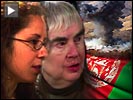 As the world marks the 10th anniversary of the September 11 attacks, we go back 10 years and revisit a remarkable conversation between two New Yorkers: Rita Lasar and Masuda Sultan. Rita Lasar lost her brother, Abe Zelmanowitz, on the 27th floor of the World Trade Center. He worked at Blue Cross Blue Shield. He refused to leave until emergency workers came to help rescue his best friend, Ed, a paraplegic. They died along with so many others. A few days later, President George W. Bush invoked Abe’s story in his speech at the National Cathedral in Washington, D.C., calling him a hero. His sister Rita promptly wrote a letter to the New York Times urging Bush not to bomb Afghanistan. "It is in my brother’s name and mine that I pray that we, this country that has been so deeply hurt, not do something that will unleash forces we will not have the power to call back." That is, of course, exactly what the United States did several weeks later. Untold thousands have died in the decade since then, among them the family of Masuda Sultan, an Afghan woman living in New York at the time of the 9/11 attack. She soon got word that 19 members of her family had been killed in a U.S. bomb attack in Afghanistan. They had moved to a farmhouse outside Kandahar to escape the attacks. It was there that they were bombed. When Masuda Sultan and Rita Lasar met in our studio in 2002, she had just returned from her native Afghanistan where she met with surviving members of her family. We begin with a report she did for Democracy Now! as she made her way to Afghanistan from Pakistan while investigating the bombing.
As the world marks the 10th anniversary of the September 11 attacks, we go back 10 years and revisit a remarkable conversation between two New Yorkers: Rita Lasar and Masuda Sultan. Rita Lasar lost her brother, Abe Zelmanowitz, on the 27th floor of the World Trade Center. He worked at Blue Cross Blue Shield. He refused to leave until emergency workers came to help rescue his best friend, Ed, a paraplegic. They died along with so many others. A few days later, President George W. Bush invoked Abe’s story in his speech at the National Cathedral in Washington, D.C., calling him a hero. His sister Rita promptly wrote a letter to the New York Times urging Bush not to bomb Afghanistan. "It is in my brother’s name and mine that I pray that we, this country that has been so deeply hurt, not do something that will unleash forces we will not have the power to call back." That is, of course, exactly what the United States did several weeks later. Untold thousands have died in the decade since then, among them the family of Masuda Sultan, an Afghan woman living in New York at the time of the 9/11 attack. She soon got word that 19 members of her family had been killed in a U.S. bomb attack in Afghanistan. They had moved to a farmhouse outside Kandahar to escape the attacks. It was there that they were bombed. When Masuda Sultan and Rita Lasar met in our studio in 2002, she had just returned from her native Afghanistan where she met with surviving members of her family. We begin with a report she did for Democracy Now! as she made her way to Afghanistan from Pakistan while investigating the bombing.Video
Source: Democracy Now!
Subscribe to:
Comments (Atom)


